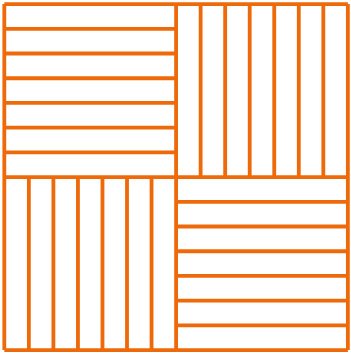Prince George’s County Jail Lacks Post-Pregnancy Care For Woman Inmate
“If you’re going to incarcerate a pregnant woman, be prepared to take care of her,” Marshall said. “Have a meal for her. You know, a dog, who has puppies, is given more care than a pregnant woman in Prince George’s County jail.”
- Linda Marshall
Linda Marshall, 66, is crying as her great-grandson whimpers in the background. She loves him and is happy that he is in the world. For now, she is his guardian while Leara Davis, her granddaughter, is incarcerated at the Prince George’s County Department of Corrections, a pretrial facility, in Upper Marlboro, Maryland. She is upset because the jail staff, she claims, hasn’t provided Davis with the supplies needed to store her breast milk for her son nor the medical attention she needs post-birth.
“If you’re going to incarcerate a pregnant woman, be prepared to take care of her,” said Marshall. “Have a meal for her. You know, a dog, who has puppies, is given more care than a pregnant woman in Prince George's County jail.”
“Some of the officers in here don’t even see you as a person,” Davis said in a recording sent to The Intersection. “They see us as the thing you’re accused of.”
Davis said imprisonment has made her feel less human. One day, she just started crying – feeling like she didn’t want to live anymore. “I pleaded with God because that is the only thing I know how to do,” she said.
Davis is held at the Prince George’s County Department Of Corrections in Upper Marlboro, Maryland. For the sake of this article, The Intersection will not report on the current charges against Leara Davis. Sometime in December, she had an emergency cesarean because her placenta burst. She was allowed to hold her child before Child Protective Services called Marshall, her grandmother, to retain custody of the child.
Since undergoing the C-section, Marshall said her granddaughter is not receiving the medical attention she deserves. She said her granddaughter’s C-section incision is “showing signs of infection around the incision point.”
“She is not taking any form of antibiotics to combat any infection that could be spreading from the lack of care that she is receiving,” said Marshall.
Marshall talks to Davis almost every morning. The Department of Corrections (DOC) has allowed her to pump her breast about every two to three hours. Davis needs to pump milk. Her child was having difficulty digesting the formula. Davis’s milk is essential to her son’s health and survival.
“His doctor recommended giving him straight breast milk as long as it can be made available,” Marshall explained.
Something unexpected happened. The jail’s supply of breast milk storage bags had diminished. So between December and January, Leara had to notify her grandmother, urging her to bring breast milk storage bags to the jail.
“When they ran out of bags. they told her that they were waiting on some to come in. While they were waiting on some to come in, they allowed me to buy bags for her. I’ve been buying them ever since.”
“When they ran out of bags, they told her that they were waiting on some to come in,” Marshall explained. “While they were waiting on some to come in, they allowed me to buy bags for her. I've been buying them ever since.”
Additionally, Marshall said the jail doesn’t have breast pads, which are used to absorb breast milk in case of leakage. She was given napkins to absorb the breast milk. This substitute has resulted in her having sore nipples.
“It’s not hard to believe that she is going through that,” said Qiana Johnson, activist, and founder of Life After Release, an organization that helps formerly incarcerated women. Johnson, along with other activists, provides emotional support to Marshall as she navigates her granddaughter's incarceration. She also took part in advocating for correction facilities to stockpile hygiene products. Johnson said carceral institutions are not designed for women, but, unfortunately, for Black men. While in prison, she said, correction officers would use feminine hygiene products as bargaining chips. “If you clean your room, you get…hygiene product,” she explained. “That was my personal experience.”
However, Johnson does see some progress. Years ago, women were not allowed to pump in prisons. It is the work of advocates that have pushed forth policies allowing them to pump their breast milk in prisons.
But the jail is currently on lockdown and has been since the end of January. The jail has 16 units. The lockdown has impacted each unit differently. However, generally speaking, non-legal visits have been suspended. Inmates are constantly in their cells. Some Inmates rarely have the chance to contact or see loved ones. Marshall cannot visit her granddaughter nor enter the jail. Andrew Cephas, public information officer at the Prince George’s County Department of Corrections, said: “The lockdown is a security condition used by all jails to ensure safety. Disciplinary issues and staff shortages will place any jail on lockdown”. He said this particular lockdown had to do with disciplinary issues.
“Recently, a few of the jail’s housing units had severe disciplinary issues, resulting in those units being placed in a lockdown status to ensure safety was maintained while appropriate investigative and adjudication of matters were completed,” explained Cephas.
Does this mean the jail is still investigating disciplinary issues, which has resulted in an ongoing lockdown? This jail has had staffing shortages for a while. Is the particular staffing shortage more than usual? These questions remain unanswered.
Marshall and other relatives alternate visiting the jail to retrieve Davis’s breastmilk. Officials at the jail informed them that they have to come to the jail to pick up the milk every two to three days because they have no place to store it. When Marshall arrives at the jail, a nurse brings the breast milk to the front entrance of the jail, where she retrieves it.
Marshall said Davis told her that a nurse was giving the bags to store milk to other inmates for use. Leara complained to the medical staff about this, according to Marshall.
“The nurse got upset about it,” according to Marshall. “She said something like, ‘Well, you know, we’re doing you a favor by letting your grandmother bring them in here.”
But there were more issues that allegedly disrupted Davis's ability to pump milk every three hours. She was on the medical unit, according to Marshall, but was removed due to a shortage of beds. She was then put back into the general population, perhaps in a cold cell. Now, guards have to wake up Davis every two to three hours to escort her back to the medical unit to pump. Afterward, guards escort her back to her cell.
The Intersection asked DOC how often the institution allows women to pump their breasts, and if the jail has proper supplies that complement women after pumping. At the publishing of this article, DOC has not answered these questions.
Marshall said her granddaughter has developed lumps in her breast. Whitney Dula, an international board lactation consultant, said the lumps are likely clogs within the breast tissue. These lumps develop due to a lack of pumping or nursing.
“Babies eat every two to three hours, so a parent that is breastfeeding or pumping should be expressing as often,” explained Dula. “Some breastfeeding parents also make too much milk and develop similar issues because they can't fully empty the breast. Other causes may be a poorly functioning or fitting pump, or in rarer cases, a cyst within the breast.”
Dula said if this goes untreated, her breasts could become infected, which could result in flu-like symptoms, soreness, pain, discoloration, or bruising in the breast.
According to Marshall, a medical professional inside the jail told Davis to make a warm compress out of one of her socks. This, the nurse allegedly said, could reduce the size of the lump in her breast.
When Davis was told this, the jail did not have hot water. “When Leara told the doctor that there was no hot water available, the doctor simply shrugged her shoulders and said, ‘Wow, I forgot about that,’” Marshall said.
Dula said it is no longer standard procedure to reduce swelling using hot water. In fact, she said, heat can cause swelling. She said The Academy of Breastfeeding of Medicine recommends using ice packs or cool washing clothes along with continued pumping and gentle massages. But it’s not clear if Davis will get this medical advice in jail.
Under these conditions, Davis continues to pump when allowed.
DOC public information officer, Cephas, confirmed that the jail has hot water. However, he did not say whether it was consistent or not. According to Marshall, the hot water is inconsistent.
All this has negatively impacted Davis’s mental health. Before being imprisoned, she regularly took prescription drugs and attended therapy for her mental health. As an inmate, Marshall said, DOC has given Davis her medicine, but just not on time. She is struggling. It is not clear if she is seeing a mental health professional.
In the same recording, Davis talks about finding inspiration to keep living in the midst of her situation. But the recording is muffled, and The Intersection cannot fully understand what Davis said that helps to keep her going.
Despite this, Marshall and Davis are enduring. They do so with little assurance that the situation will improve.
Read Our Other Coverage






